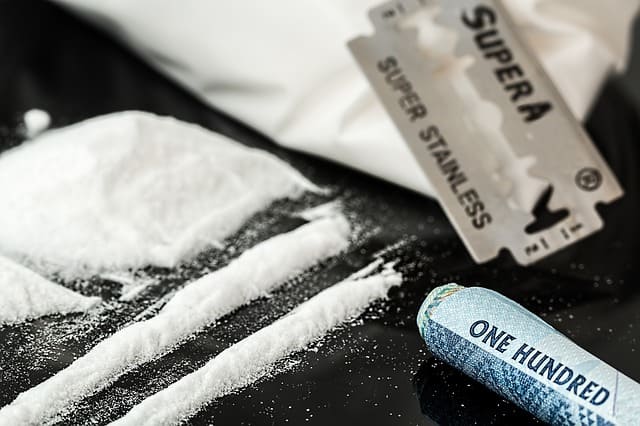Professions with the Highest Risk of Drug Abuse
Some people believe that certain professions provide an enabling environment for substance abuse and addiction. Likewise, there is a group of people who hold the view that addicts tend to be attracted to certain professions. Irrespective of a person’s view, one thing is clear: there is a relationship between substance abuse and certain professions. Additionally, drug abuse and addiction cases are more in certain professions than others. The rate of drug and alcohol abuse in a particular profession is determined by various factors, including gender, salary amount, position, and religious affiliations. This content explores various industries and professions with the highest rate of substance abuse. They include:
Sales
This industry is associated with the highest number of substance abuse and depression cases because of many reasons. Many workers in sales industry are poorly paid despite hard work. Some even get commission-based wages, which usually depend on the quantity of sales. As a result, many of them may not be able to meet their basic needs and responsibilities. The workers may fail to pay school fees for their children, and they may be unable to meet medical expenses. They end up being frustrated and stressed. Most of them resort to alcoholism and other forms of substance abuse as a way of relieving stress.
Another aspect that contributes to the high rate of substance abuse in the sales industry is too much travel. In some cases, sales workers have to travel long distances that last up to several weeks or even months. It means they spend most of their time away from their families and loved ones. This may result in stress and depression. Since some sales workers drive for long hours, they need drugs to stay awake and energetic. This contributes to drug abuse.
Health Care
Healthcare professionals, including pharmacists, nurses, anesthesiologists, dentists, surgeons, and others, have high chances of substance abuse. While other professionals may experience difficulty accessing drugs, professionals in the health care industry have easy access to drugs, including anesthetics. Although seeing drugs may not necessarily trigger drug abuse, the human mind is typically attracted to things that are believed to increase pleasure. Hence, seeing the drugs on a daily basis can be very tempting. According to scientific researchers, about 10 to 15 percent of professionals in the healthcare industry abuse drugs.
Law Enforcement
Working in the law enforcement industry involves dealing with people to ensure they act according to certain set rules. However, it is almost impossible to keep the society completely crime-free. Law enforcers, including police and correctional officers, have to remain vigilant most of the time. This is one way of ensuring that law and order are observed in the society. The officers also impound illegal drugs and arrest drug dealers frequently. When the officers see the impounded drugs, it may be difficult to resist using them.
Additionally, some law enforcers, such as police officers, are required to work during odd hours. They withstand cold nights to keep the society safe. They also engage civilians in running battles during riots. In some cases, they have to fight with criminals. In extreme circumstances, they are forced to kill criminals. All these events make their job stressful. To relieve this stress, many law enforcers resort to alcohol abuse.
Agriculture
Agricultural activities, such as farming, fishing, and forestry, are potential triggers of substance abuse. For instance, a person may have a farm far away from his home. This may mean spending most of his time on the farm, which separates him from his loved ones. Solitude is a potential trigger of depression, which leads to drug abuse. Agricultural activities also create boredom because they involve doing the same things repeatedly. As a result, workers in the agricultural industry tend to take alcohol to avoid boredom.
Additionally, agricultural activities involve the use of a lot of energy. For instance, farming involves cultivation, weeding, and harvesting. These activities may be difficult to accomplish in cases where a person does not have money to hire labor. As a result, farmers may decide to use substances that boost energy, leading to drug abuse. These energy-sapping activities also cause stress, which leads to drug abuse as a way of seeking stress relief. Plus, some farmers plant addictive drugs, including bhang. This exposes them to the drugs, making it difficult to resist drug abuse.
Restaurant
Working in a restaurant can be stressful. Restaurant workers have to be on their feet most of the time. They report to work very early and leave very late. They experience boredom because they have to do the same job in the same place every day. Some restaurants are located next to pubs, which expose the workers to alcohol. These factors contribute to a favorable environment for drug abuse. Published research in the American Journal of Drug and Alcohol Abuse asserts that 80 percent of men who work in restaurants are involved in drug abuse. According to the same research, 64 percent of women workers in the restaurant industry get affected.
Bottom Line
Despite the fact that there are some professions with higher addiction rate that others, it is important to note that drug abuse can affect any person in any industry. Drug abuse in the workplace has negative consequences. It can lead to termination of employment and poor working relationship with co-workers and clients. Although some employers have programs that help their workers to manage addiction, it is advisable to deal with the problem as soon as the signs of addiction emerge. Since some drug addicts struggle with recovery, it is important for them to receive support during the recovery process to prevent a possible relapse. Changing a profession to avoid exposure to drugs can also be an important aspect of addiction recovery process.




